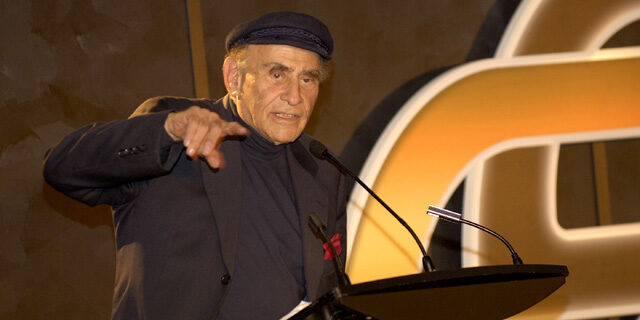I’ve been reading the obits on Peter C. Newman — editor and columnist for the Star and Maclean’s, and bestselling author- who died last week at 94. I’m surprised to find him more compelling in retrospect than I did during his lifetime, including my own interactions with him.
He was in fact a bit of a joke and buffoon. He came from an era of large-living journalists — authors like Pierre Berton, Richard Gwyn, Walter Stewart, Peter Gzowski — who’d been imprinted by Ben Hecht’s The Front Page. They could indulge in self-mythologizing because they worked for big, rich institutions. It’s what made the mass media massive, along with their monopoly on information.
They may’ve envied Newman’s power and success but wouldn’t have wanted to be him. He was too obviously insecure and striving. They mocked him behind his back and compiled lists of his most preposterous images, like the “raindrops that were wilting (former prime minister Brian) Mulroney’s cowlick.” Newman provided an endless supply. He didn’t hang much with those guys, or wish to. He wanted to use the power of media to reach loftier heights, as he saw them.
He tended to the gnomic; in fact it was his normal. I once wrote a sketch for a radio satire show on how he intended to change Maclean’s to MacNewman’s since he produced most of its content, including a weekly feature called “The Human Newman,” where he mused about jazz he played on headphones at 4 a.m. when he rose to write his books. I was doing a piece for him and he called (there was no internet) to say only: Um, be sure to put your humour in. He considered me politically dicey and sent me to see former finance minister and Bay Street eminence Walter Gordon, with whom he hobnobbed. Gordon explained to me that capitalism was important in Canada.
After I did a nasty piece for a minuscule left journal on Barbara Amiel, his star writer at Maclean’s, he waved me to his table at Gracie’s on Queen Street West to say he’d loved every word and if I repeated that, he’d deny it. But I digress.
I think he, like iconic theatre critic Nathan Cohen, and Berton, yearned for a grander, gaudier Canada and when one didn’t materialize, tried to embody it themselves: Cohen by being a theatrical figure who carried a pearl-handled cane to openings which he called “pure affectation”; Berton by colourizing Canadian history (we too had pirates, in the Thousand Islands!). Newman craved a more flamboyant journalism, like Tom Wolfe’s in the U.S.
As I say, there were other journalists with inflated egos but Newman was unique. He had, for instance, an appealing awareness of his own egomania. He said he and second wife Christina McCall, had a “religious difference. I thought I was God and she didn’t.” As with many penetrating, nay devastating, insights that people voice and then ignore, he never let it get in the way of living his self-obsessed existence, but he perceived it lucidly.
That suggests he was more complicated than it seemed. He liked to call himself a court jester, a complimentary European term for one who speaks truth (through humour) to power. Indeed there may’ve been much of the Mittel-European manoeuvrer and schemer in him: individuals and nations squeezed between greater powers who learn to use craft and flattery to survive. It would explain some of his scuzzier traits, like sucking up to the rich. Another journalist of that era, Ian Adams, wrote, of another media figure, that he’d got so far up the Canadian Establishment’s rear end he caught a glimpse of Newman’s heels.
But Newman was 11 when he arrived here, a Jew fleeing Nazi-occupied Czechoslovakia. He felt he never quite mastered English and titled his autobiography, Here Be Dragons, based on ancient maps of the “new world.” His contradictions were unconcealed, but that too may have been part of his cunning, his strategies for survival and success in spite of ever lurking perils.
This column originally appeared in the Toronto Star.



